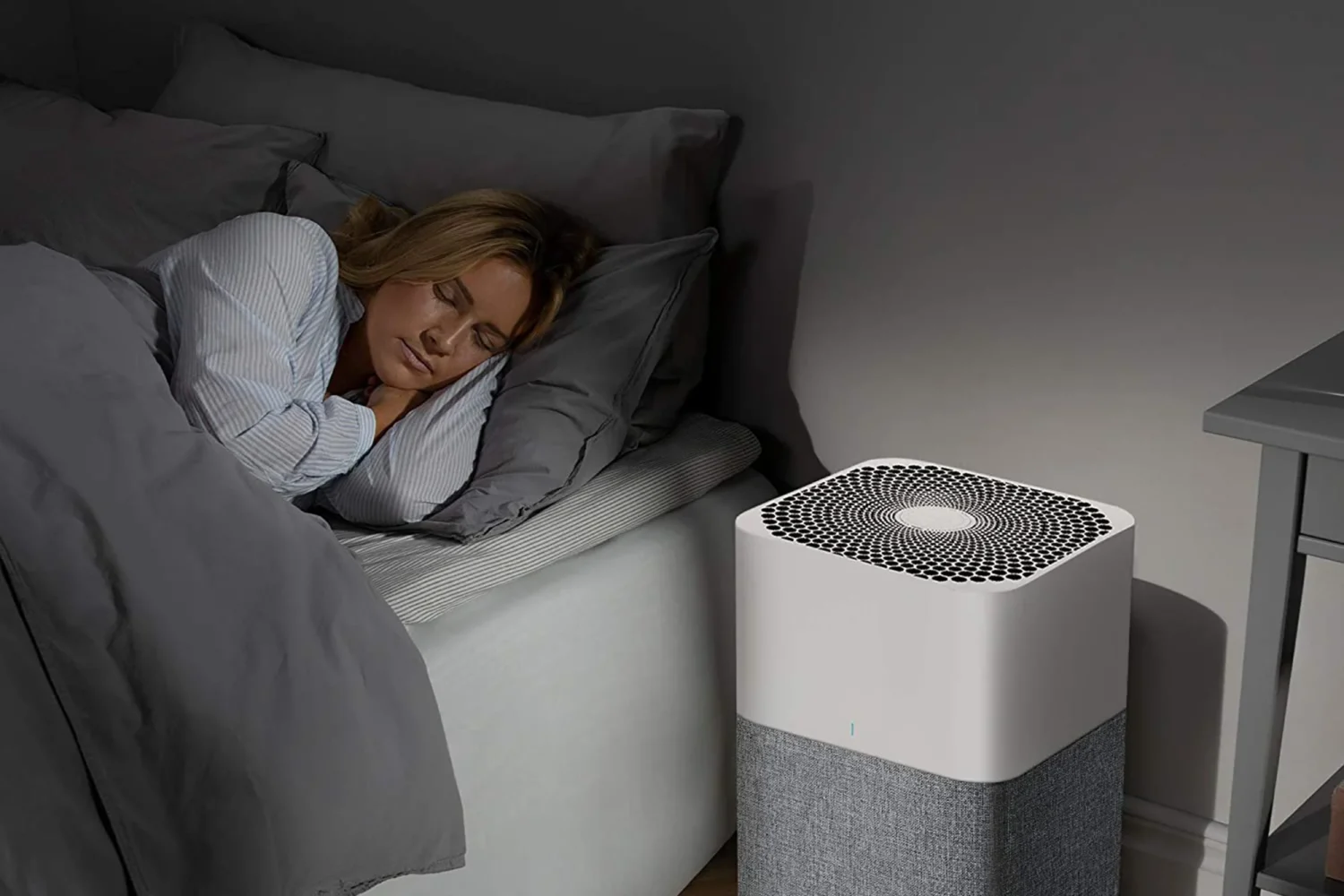Sleep is not just a pause from our busy lives, but a critical foundation of our health and well-being. The quest for optimal rest involves various factors, and one intriguing aspect is the environment we sleep in. This discussion introduces the concept of enhancing sleep quality with the use of air purifiers. Amid growing concerns about air quality and its impact on health, understanding the role of these devices in ensuring a restful night becomes crucial. This post aims to shed light on how integrating atmosphere purifying solutions in sleep environments might be a game-changer, promising cleaner air and potentially better sleep.
What is an Air Purifier?
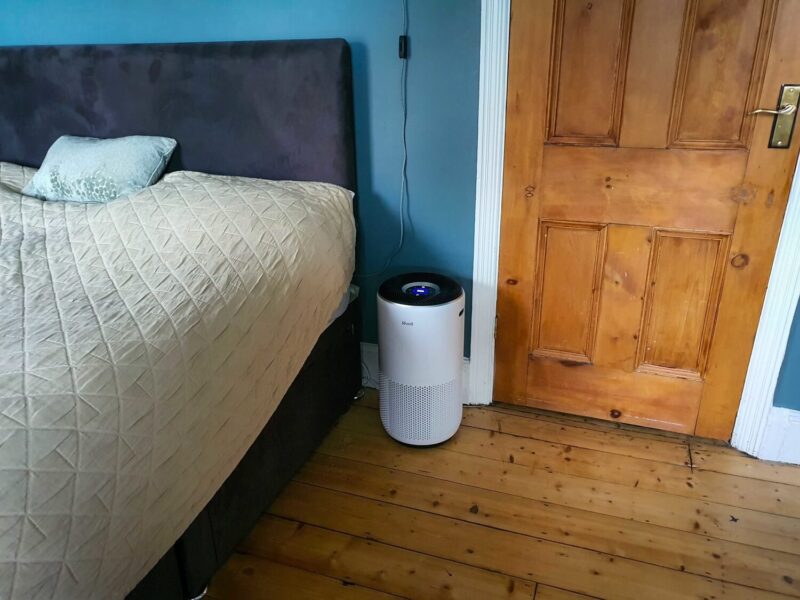
An air purifier serves as a sentinel for indoor air quality, operating quietly yet effectively to eliminate various pollutants from your living space. At its core, this device is engineered to cleanse the atmosphere, targeting pollutants ranging from fine dust particles to volatile organic compounds. The market offers a plethora of purifier types, each with unique mechanisms. Some employ HEPA filters, renowned for trapping minuscule particles, while others use activated carbon filters to neutralize odors and chemicals. Understanding the workings and variety of these purifiers is pivotal in gauging their role in enhancing indoor atmosphere quality and, by extension, your sleep quality.
Benefits of Using an Air Purifier
Incorporating an purifier into your bedroom might transform your sleep experience. These devices are designed to filter out a multitude of airborne nuisances, from common dust and pet dander to more insidious allergens and pollutants. The reduction of such irritants is particularly beneficial for individuals prone to allergies or respiratory issues, as it minimizes the triggers that can interrupt sleep. Moreover, the presence of cleaner air can contribute to a more comfortable and soothing sleep environment, potentially fostering deeper and more restful sleep cycles. As we understand more about the link between airs quality and sleep, the benefits of atmosphere purification in the bedroom become increasingly evident. For a good one please click here.
Potential Health Concerns from Poor Air Quality
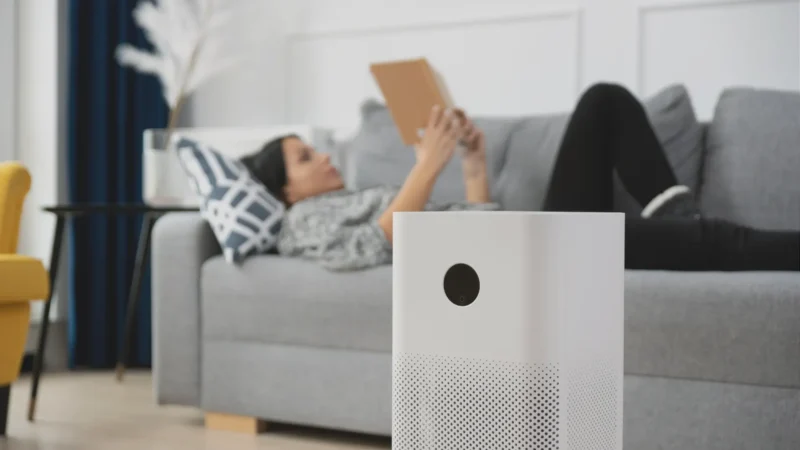
The quality of the air we breathe profoundly affects our health and well-being, with poor atmosphere quality emerging as a silent adversary in our homes. Polluted indoor environments are breeding grounds for a range of health issues, particularly exacerbating respiratory conditions like asthma and allergies. These ailments can significantly disturb sleep, leading to a night of tossing and turning instead of restful slumber. Furthermore, long-term exposure to polluted air has been linked to more severe health complications, making the pursuit of a cleaner atmosphere through purification not just a matter of comfort, but a crucial health consideration. Understanding these risks underscores the importance of maintaining clean air in our sleeping quarters for both immediate comfort and long-term health.
Can an Air Purifier Help with Sleep?
Exploring the link between air purifiers and sleep quality unveils a compelling narrative. These devices promise to create a sanctuary, free from the pollutants and allergens that disrupt sleep patterns. Studies suggest that breathing cleaner air can lead to significant improvements in sleep quality, particularly for those suffering from allergies or asthma. By reducing airborne particles and creating a fresher environment, purifiers may facilitate a smoother transition into deep, restorative sleep phases. This notion is supported by research indicating a correlation between purified atmosphere and reduced sleep disturbances, painting these purifiers as potential allies in the quest for a peaceful night’s sleep.
Tips for Choosing the Right Air Purifier
Selecting the ideal purifier for your bedroom involves careful consideration of several factors. The size of your room plays a crucial role, as purifiers are designed to cater to specific area sizes. Additionally, the type of filter is paramount; HEPA filters are renowned for their efficiency in capturing fine particles, while activated carbon filters excel in removing odors and gases. Noise level is another critical aspect, as a noisy device might counteract the benefits by disturbing your sleep. Opt for a purifier with a quiet operation, especially for nighttime use. By evaluating these factors, you can ensure that your choice not only enhances atmosphere quality but also contributes positively to your sleep environment.
Placement of the Air Purifier
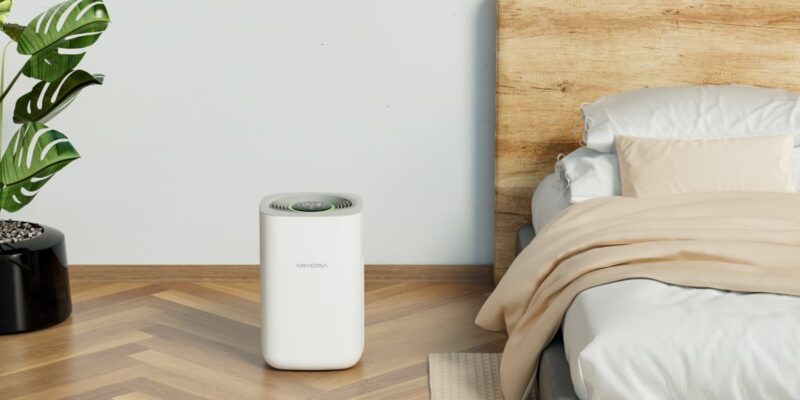
Strategic placement is key to maximizing the effectiveness of your air purifier. The ideal location is usually away from walls and furniture, allowing for unrestricted oxygen flow. Positioning the device near common sources of pollution or high-traffic areas can also be beneficial. However, in the bedroom, it’s essential to balance effectiveness with comfort. Placing the purifier at a distance from the bed, yet within the room’s atmosphere circulation path, ensures efficient purification without the disturbance of direct airflow or operational noise. Understanding and optimizing the placement of your purifier can significantly enhance its performance and your overall sleep quality.
Maintenance and Cleaning
Maintaining your air purifier is crucial for its effectiveness and longevity. Regularly cleaning and replacing filters according to the manufacturer’s guidelines ensure that your device operates at peak efficiency. Neglecting maintenance can lead to reduced air purification performance and, consequently, diminished atmosphere quality. For most purifiers, maintenance involves simple steps like vacuuming the exterior, wiping down surfaces, and replacing or cleaning filters. Establishing a routine maintenance schedule helps in preserving the purifier’s functionality, ensuring that it continues to contribute positively to your indoor atmosphere quality and overall health.
Other Sleep-Enhancing Tips
While air purifiers play a significant role in creating a conducive sleep environment, they are part of a broader spectrum of sleep-enhancing practices. Maintaining a consistent sleep schedule, ensuring your bedroom is dark and quiet, and regulating the temperature can also profoundly impact sleep quality. Limiting screen time before bed and engaging in relaxing activities can further prepare your body and mind for rest. Combining the benefits of a purifier with these practices can lead to a more holistic approach to improving sleep, emphasizing the importance of a multi-faceted strategy for optimal rest.
Possible Drawbacks of Using an Air Purifier
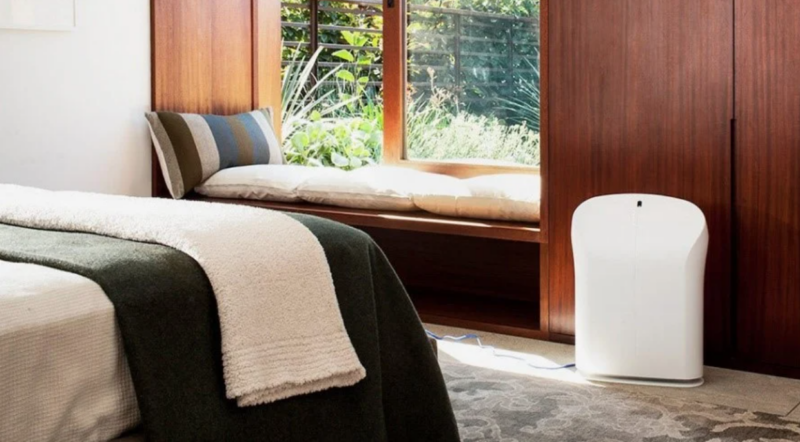
While air purifiers offer numerous benefits, it’s essential to consider potential drawbacks. Initial costs and ongoing maintenance can be a financial consideration. Energy consumption is another aspect, with some purifiers consuming significant electricity, potentially impacting utility bills. Additionally, relying solely on a purifier without addressing other factors that contribute to poor sleep or air quality might not provide a comprehensive solution. It’s crucial to weigh these factors against the benefits, ensuring that the decision to use a purifier aligns with your specific needs and circumstances.
Conclusion
In conclusion, sleeping with an atmosphere purifier can contribute significantly to a healthier and more restful night. By removing pollutants and allergens, these devices create a cleaner, more comfortable sleep environment. While acknowledging the importance of maintaining and selecting the right purifier, it’s clear that the benefits can be substantial, especially for those with respiratory concerns or allergies.
Related Posts:
- How Air Purifiers Benefit Your Pet's Health and…
- 12 Tips for Planning a Team Building Event: Expert…
- Choosing a Family Pet: What Is the Easiest Dog to…
- Tips for Maximizing Compensation in Your Long-Term…
- Becoming a Celebrity: Social Media Management Tips…
- Quick Tips to Naturally Increase Fertility and Boost…

